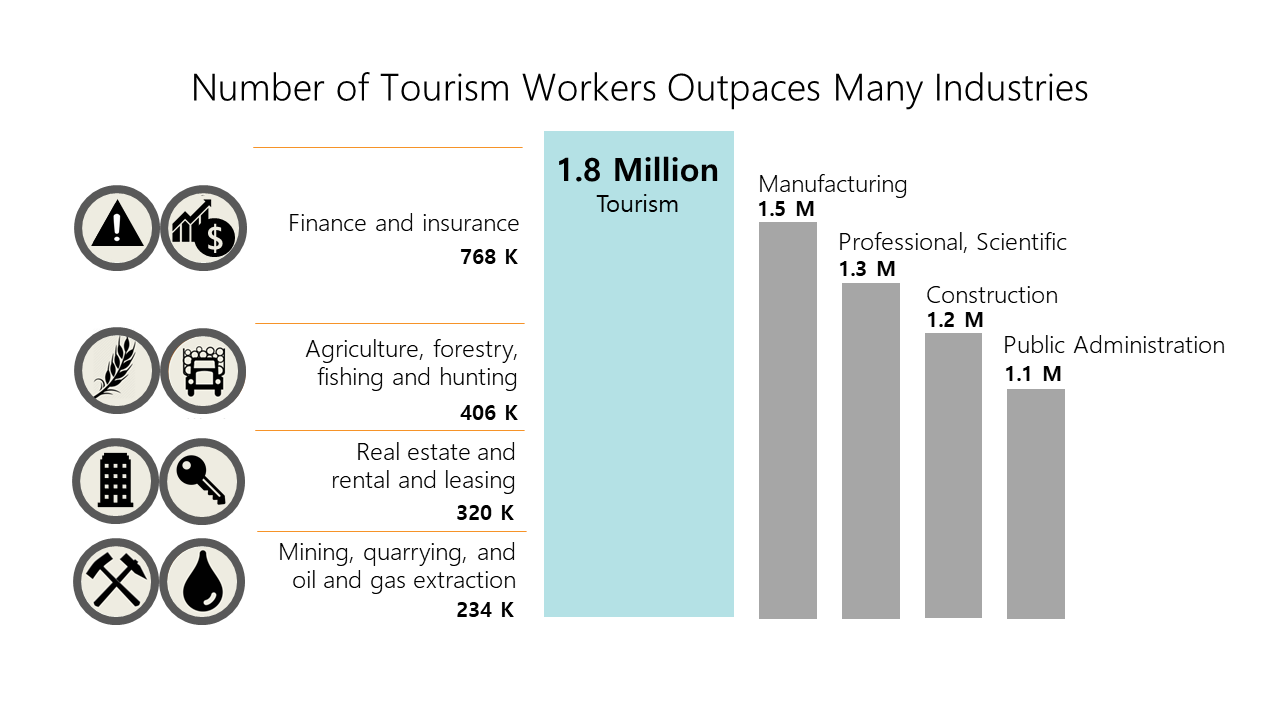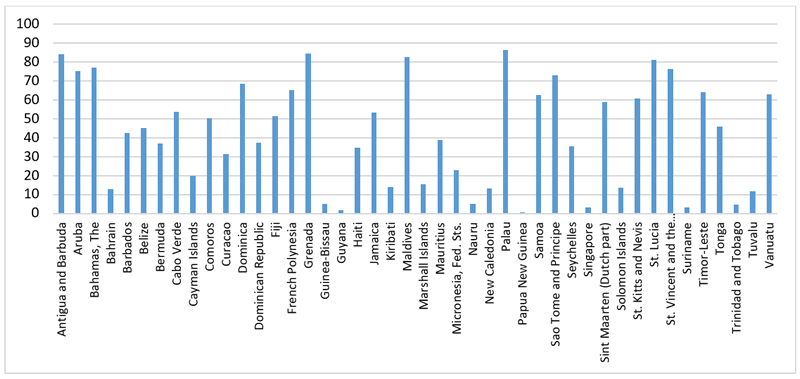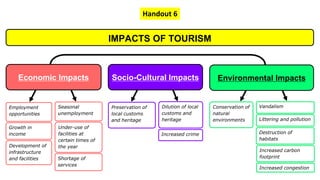Tourism is a significant contributor to employment around the world. It creates jobs in a variety of sectors, including transportation, accommodation, food and beverage, entertainment, and retail. The impact of tourism on employment can be both positive and negative, depending on various factors such as the destination, the type of tourism, and the management of tourism development.
One of the main benefits of tourism for employment is the creation of new jobs. Tourism can stimulate economic growth and development in a destination, leading to the creation of new businesses and employment opportunities. For example, the construction of new hotels, restaurants, and tourist attractions can create jobs for local workers. In addition, tourism can generate indirect employment by supporting businesses that provide goods and services to the tourism industry, such as suppliers of food and drink, transportation companies, and retailers.
Tourism can also provide employment for people who may have limited job opportunities in other sectors, such as young people, women, and disadvantaged groups. In many destinations, tourism can provide employment to people who may not have the skills or education required for other types of work. For example, tourism can provide employment opportunities for indigenous communities and people living in rural areas.
However, the impact of tourism on employment can also be negative. In some cases, tourism can lead to the displacement of local workers, as foreign workers are often brought in to fill higher-skilled jobs. This can result in a brain drain, as local workers who are qualified for these jobs may leave the destination to seek employment elsewhere.
In addition, tourism can lead to the casualization of work, as many tourism jobs are part-time or seasonal. This can make it difficult for workers to earn a stable income and access benefits such as health insurance and retirement savings. In some cases, tourism workers may be paid low wages and may not have access to training and development opportunities.
To maximize the positive impact of tourism on employment, it is important for destinations to carefully manage their tourism development. This can include measures such as investing in training and development programs for local workers, implementing policies to promote the employment of local workers, and ensuring that tourism businesses pay fair wages and provide good working conditions.
In conclusion, tourism can have a significant impact on employment, both positive and negative. To maximize the benefits of tourism for employment, it is important for destinations to carefully manage their tourism development and ensure that the benefits of tourism are shared by all members of the community.
Impacts of tourism

Is tourism a good source of employment explain? The contents of this paper should be able to help you in generating new ideas and thoughts for your own research. Again, there exist several small firms that offer tourism services, and the proportions of persons who work in self enterprises hardly obtain consideration while computing the total workforce. In Cross River State over one thousand five hundred hotels established and duely registered by Cross River State tourism bureau are located in the three senatorial districts Larry, 2005. Tourism can be divided into subcategories into which impacts fall: spending from visitors on tourism experiences, like beach holidays and theme parks domestic and international , business spending, and capital investment. World Tourism Organization seminar proceedings. Front offices in hotels, restaurant, travel agencies, tourism information offices, aircrafts, cruise line, resorts or shopping outlets provide direct employment because their employees are in contact with tourist and cater for tourist demand. The short-run asymmetric association can be provided via the dynamic multiplier effect in the following method, given the validation of the non-linear relationship.
Tourism and COVID

The effect will be particularly felt in travel services, air transportation, and rail transportation, although all tourism industries will lose close to half of their revenue this year. Keyword; Tourism, Unemployment, Touristic,workers. The hospitality industry is part of a huge group of companies known as travel and tourism industry, which provides the necessary or desirable goods and services to travelers. However, the development of tourism can also reduce the dependency on primary merchandise as a source of export earnings. This, although it gives us an idea of the magnitude of the sector, as well as the degree of penetration of the same in the global economy. In the case of The increase in tourism can be a blessing and a curse at the same time, because social media and other new advertising channels often attract so many tourists to one place that it can lead to "overkill". This can be seen in the areas of employment creation as well as income generation potential.
Tourism: an important sector for the world economy

Efforts to eradicate these costs may include employing interns or related personnel who are usually free during peak seasons. In 2010, the number of tourists visiting South Africa increased by a million, and presently the country is seeking to increase the number of global conferences and sports occasions in an effort to increase tourist arrivals Brand South Africa par. Unemployment that occurs due to seasonal employment may be willingly or unwillingly because some employees prefer seasonal job as they are paid more compared to other job. This paper examines the symmetric and asymmetric effects of tourism, market capital, financial development, and trade on service sector employment in Australia from the period 1991—2019. A long run asymmetric NARDL relationship reaffirmed the service sector employment and tourist arrival linkage, while a positive shock in TA increased employment, and a negative shock decreased employment in the service sector. Therefore, this paper wish to assess the impact of the hotel industry in poverty alleviation with respect to yearly tourist arrivals, reasons for tourist visit to Cross River State as a tourist destination, length of stay, employment level in the various hotels, revenue generation in the hotels and the monthly remuneration paid to staff in the industry. The employment outlook was driven by assumptions regarding general economic indicators and specific levels of demand for tourism products and services from domestic tourists, international tourists, and non-tourism demand locals.






